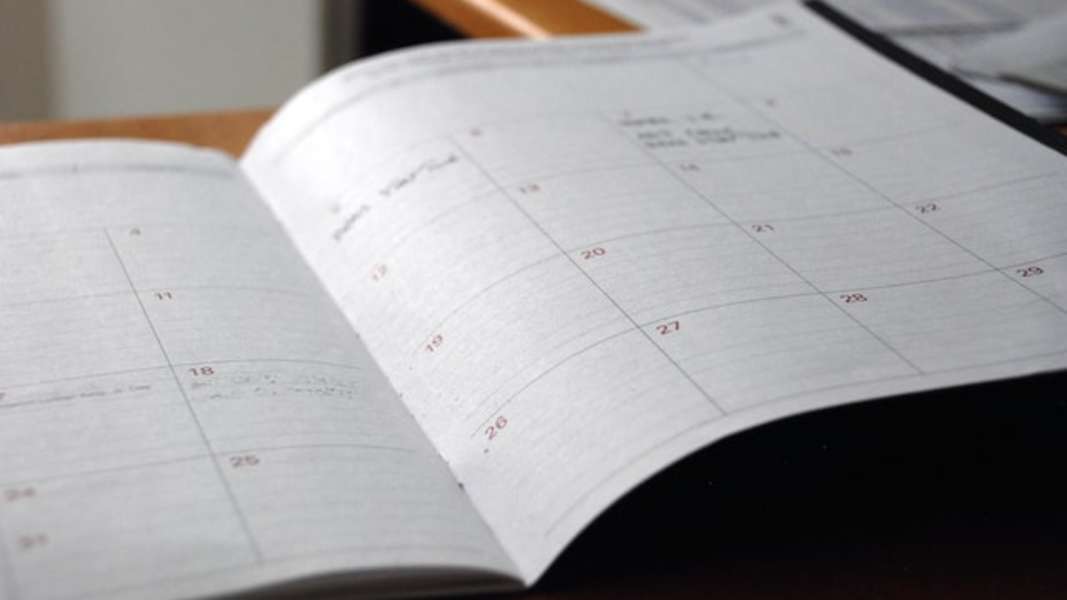In any job interview, time management skills are always going to be something that interviewers will focus on. This is because, at the end of the day, employers want to know that their employees are able to manage their time in a way that is both effective and efficient.
Time management interview questions allow the interviewers to get a better understanding of how you prioritize and value different tasks. It also gives them insight into how you handle stressful situations and whether or not you are able to stay calm under pressure.
To help you prepare for your next interview, we’ve compiled a list of the top 10 time management interview questions you may be asked, along with some tips on how to answer them.
1. What are some of the techniques you use to manage your time?
Just saying on your CV that you are able to manage your time effectively, does not prove your ability to do so. The interviewers want proof of your time management skills. So, it’s highly likely that they will ask you about the techniques you use to manage your time.
Here’s what you can do when answering:
- Talk about how you prioritize tasks and priorities.
- Mention any helpful tools or apps you use to manage your time (e.g., a to-do list app, calendar, etc.).
- Explain how you stay motivated and focused throughout the day.
- Share any time management challenges you’ve faced in the past and how you overcame them.
- Let the interviewer know that you’re always looking for ways to improve your time management skills.
2. How do you avoid procrastination?
In today’s fast-paced world, it’s more important than ever to be able to stay on top of your work and avoid procrastination. That’s why interviewers often ask job candidates how they avoid procrastination.
First, talk about what causes you to procrastinate. Is it because you’re unsure of what needs to be done? Or because you’re feeling overwhelmed? Once you identify the cause, it’s easier to find a solution.
Next, highlight some of the methods you use to avoid procrastination. This shows that you’re aware of your problem and are taking steps to fix it.
Common methods include:
- Creating a plan of action for each task you need to complete.
- Breaking down a project into smaller steps.
- Setting deadlines for yourself.
- Keeping your workspace organized.
- Avoiding distractions like social media.
3. What do you do when unexpected events or emergencies occur that disrupt your work schedule?
Answering this question is difficult. Thinking about a time when you had to deal with an unexpected event or emergency at work might bring unpleasant memories. And that’s okay.
Take a deep breath and remember that the interviewer is just trying to get to know you better and see how you react under pressure. So, just think about what you did, how you handled it, and what was the outcome.
Even if you’ve never had to deal with an unexpected event or emergency at work, be sure to emphasize that you would be able to keep a level head and take the necessary steps to reach a positive outcome.
To identify any areas where you need to improve your decision-making under pressure, you can take a situational judgement test. It presents you with a series of hypothetical workplace scenarios and asks you to choose the most appropriate course of action. Each scenario is timed, so you have to make your decision quickly.
4. How do you prioritize your tasks?
When you’re asked how you prioritize your tasks during a job interview, be honest and give a few specific examples. You might say that you start by evaluating the urgency of each task and then break them down into smaller, more manageable steps.
It’s ok to admit that sometimes you feel overwhelmed but you should also share how you deal with that feeling. For example, you might take a deep breath and make a list of everything that needs to be done. Then, you can start crossing things off the list as you complete them.
You can also discuss how you assess the importance of each task. These factors could include the deadlines associated with the task, the potential impact of the task on other projects or goals, and the complexity of the task itself.
Remember, the interviewer wants to know how you handle pressure and prioritize your work. So, be honest and share what works for you.
5. What do you do when you encounter a task that you don’t have enough time to complete?
The interviewer may ask you what you do when you encounter a task that you don’t have enough time to complete. Here’s how you can answer this question:
-
Emphasize that prioritization is key in any work situation. You need to be able to assess what tasks are the most important and urgent and prioritize accordingly.
-
Explain that you’re not afraid to ask for help when needed. If you’re struggling to complete a task on your own, you’ll reach out to colleagues or your manager for assistance.
-
Reassure the interviewer that even if a task isn’t completed perfectly or on time, you’ll always do your best under the circumstances. Your goal is always to produce high-quality work, even if it means working extra hours or putting in extra effort.
6. How do you reduce distractions while working?
Whether you’re working from home or in an office, distractions are everywhere. They can lead to making twice the amount of errors that you would normally do. So, the interviewers want to make sure that you are able to reduce them and focus on your work.
Just be honest about what distracts you and how you have learned to deal with those distractions. For example, if you are easily distracted by noise, let the interviewer know that you have learned to wear headphones or work in a quiet area in order to avoid being distracted.
It is also important to focus on your positive qualities and how they help you reduce distractions while working. For example, if you are able to focus well despite chaotic surroundings, mention this to the interviewer.
7. What methods do you use to keep track of your tasks?
Here the interviewer wants you to describe the methods you use to keep track of your tasks in a way that is tailored to the specific position you are applying for.
For example, if you are applying for a position that requires a great deal of multitasking and working on tight deadlines, you might want to highlight your ability to prioritize and stay organized under pressure.
In this case, you might mention that you use a combination of methods to keep track of your tasks, including making detailed lists, setting reminders and using calendar blocking.
On the other hand, if the position you are applying for is relatively low-pressure and has more flexible deadlines, you might want to focus on your ability to be adaptable and efficient with your time.
8. What are some of the challenges you’ve faced with managing your time, and how did you overcome them?
When asked about time management challenges during a job interview, it’s important to be honest and give examples of real scenarios you’ve faced. However, avoid sounding negative and instead focus on how you were able to overcome the obstacles.
Start by thinking about some of the challenges you have faced with managing your time. It could be anything from trying to balance work and home life, to having too many things on your plate at once. Once you have identified some of the challenges, think about how you overcame them.
For example, if you have trouble balancing work and home life, what steps did you take to overcome that? Maybe you created a more strict schedule for yourself, or delegated more tasks to others. Whatever the solution was, be sure to share it in your answer.
9. Tell us about a time when you had to manage multiple tasks. How did you handle it? How was your team involved?
In today’s job market, employers are looking for candidates who are not only able to handle multiple tasks simultaneously but also have the ability to delegate and manage a team.
To structure your answer effectively:
-
First, give a brief overview of a time when you had to manage multiple tasks. Be sure to include details about the different tasks you were responsible for and how you handled them.
-
Next, talk about how your team was involved in helping you complete the tasks. What role did they play? How did you delegate responsibility among your team members?
-
Finally, wrap up by discussing the results of your efforts. Did everything go smoothly? What would you do differently next time?
10. What do you do when you feel overwhelmed by a project?
When the interviewer asks you what you do when you feel overwhelmed by a project, there are a few things you can say to answer the question well.
-
First, it’s important to stay calm and not let your anxiety about the interview show - take a few deep breaths and remind yourself that you’re prepared for this.
-
Second, try to give an honest answer that shows that you’re capable of handling stress and difficult situations. For example, you could say something like: “I assess the situation and figure out what the most important tasks are that need to be completed. I break the project down into smaller tasks so I can better focus on each individual step.”
-
Finally, conclude your answer by showing that you’re proactive and capable of finding solutions when faced with difficulties.



